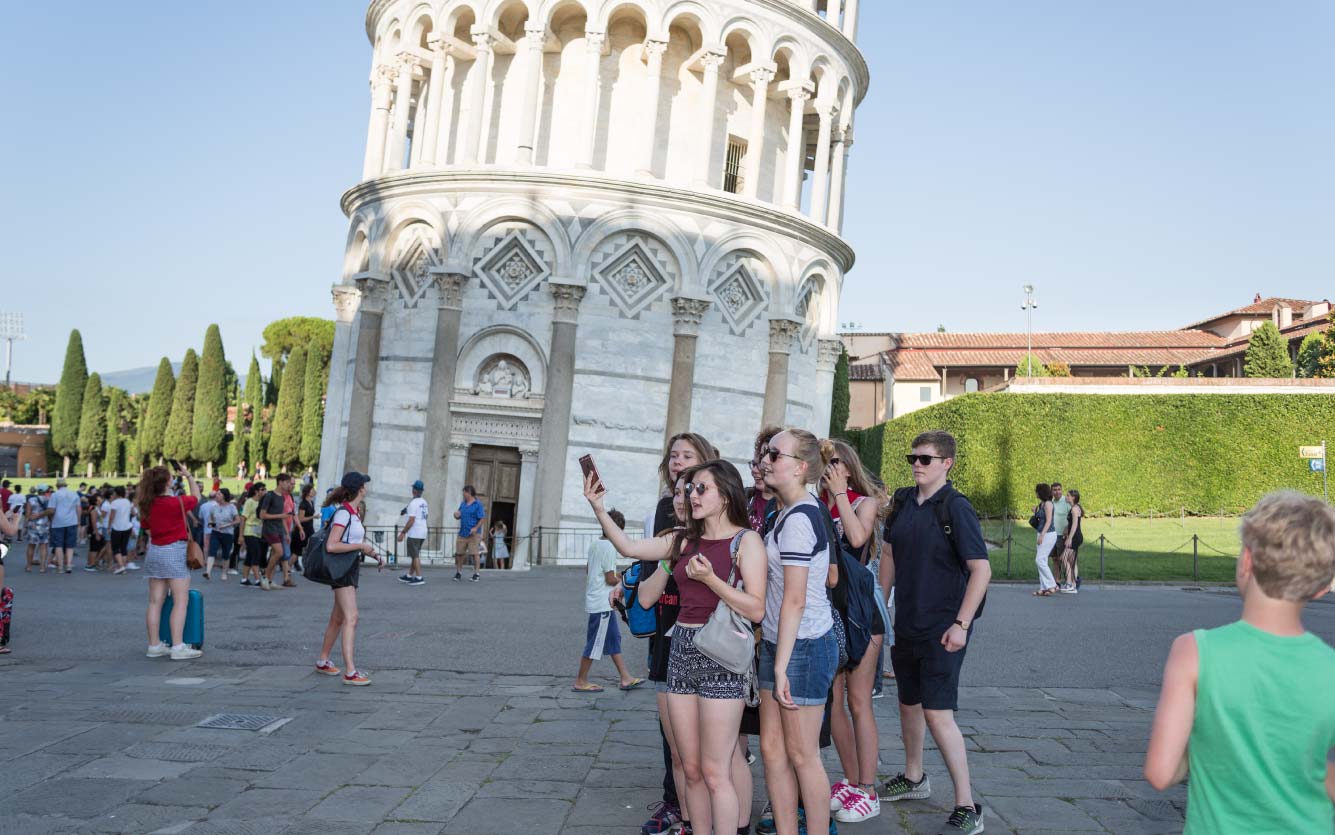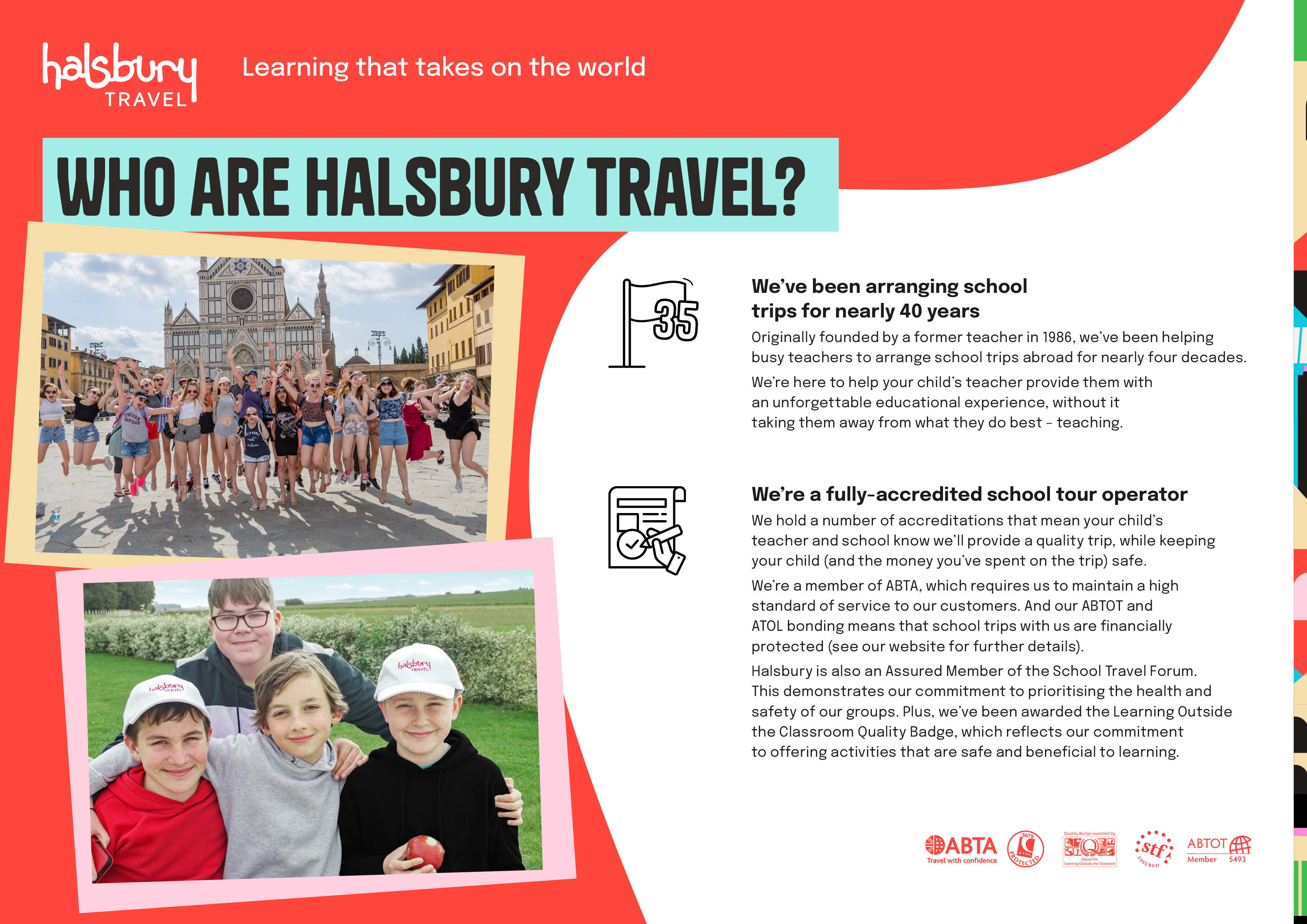Help parents understand the value of their child’s first trip away – with our guide to getting parents on board.
You know that when a child goes abroad for the first time, it’s a big deal for the parents. They worry about money, they need to know the trip will be worthwhile, and they want to know their child will be safe.
You can address these concerns by following our step-by-step guide.
So what are the steps to getting parents on board?
- Send your school trip letter
- Invite them to a parents' evening
- Keep them updated while you’re on the trip
Step 1 – Send your school trip letter
Let’s start with sending your school trip letter telling parents you’re running a trip.
We’ve put together a guide to what to include, as well as a downloadable sample letter that you can tweak (phew, that’s one job sorted).
Read our guide to school trip letters
Step 2 – The parents' evening
Honestly, in our experience, a parents' evening is the best way to get parents on board with your trip, so this is definitely something you should plan to do early on.
Preparing a PowerPoint presentation is a great way to make sure that your parents' evening is well-structured and addresses all the points you need to. We’ve actually put together a template that you can download and edit for this (saving you loads of time).
Powerpoint templates:
Educational trips presentation template »
Ski trips presentation template »
Sports tours presentation template »
Music tours presentation template »
Why not share it with parents after the event (so you don’t get bombarded with questions you’ve already answered)?
What are the main concerns you’ll need to address at your parents evening?

Why should we send our children on this trip?
Of course, you know that your trip is going to be a mind-blowing opportunity for your students.
But school trips can be expensive and you could be competing with trips being planned by other departments in your school.
So, rather than just saying where you’re planning to go and why, make sure you spend some time waxing lyrical about what it’s going to do for their children’s education.
So, if you’re running a history trip to Belgium, don’t just say you’re going on a trip to the WW1 battlefields. Explain that this trip will immerse your students in the history, bring the realities of trench warfare to life and will help the kids understand the futility of war.
And don’t forget the benefits for their personal development too. This is a chance for the children to take responsibility for themselves and their stuff, and to develop a bit of independence (for some parents, this might be more attractive than the educational benefits…).
Particular benefits of ski trips and sports tours include helping kids develop resilience and encouraging them to pursue active lifestyles.
Other benefits of school trips include improved self-confidence and intercultural understanding.
It’s also a great bonding experience for them and their classmates. And it will broaden their horizons too, as they experience other cultures.
Not sure how to word it? Show them the power of school trips with our video.
How has the trip been organised?
Parents will want to know that you’ve booked the trip with a reputable tour operator.
They’ll need to know that they’re financially protected and that their children will be safe on the trip.
If you’re travelling with us, this handout should answer most of their questions (and for anything else, just get in touch).
Will my child’s medical and dietary requirements be catered for?
It can be scary sending your child abroad without you for the first time – but if your child has specific medical or dietary requirements, it’s a little bit scarier.
So, you’re going to need to reassure parents that these requirements will be catered for.
And they absolutely will be – they just need to let you know about them as soon as they sign their kids up for the trip, so we can make sure everyone who needs to be aware of them is.
And while we’re on the subject of health, it’s a good idea to remind parents at this stage that they should obtain a GHIC card for their child if they do not already have one. They can get this free via the NHS.

How are we going to keep in touch?
Honestly, in our experience, the best way to stop parents worrying about their kids while they’re away is to post regular updates on social media.
Being able to follow the trip and see what their children are getting up to is always appreciated by parents.
It’s also a great way to keep them updated with the logistics of the trip – you can share packing checklists, remind them where not to park when dropping off/picking up, and update them on your ETA back at school.
Get the lowdown on using social media on your school trip in our guide.
Will my child be able to take their phone on the trip?
If you're going to let kids bring their phones on your trip, make sure you set out some clear guidelines on usage. And get parents to check out those roaming charges (so they don’t have any unpleasant surprises when the bill comes).
Make it really clear that if kids do bring phones, it will be at their own risk – insurance often doesn’t cover lost or damaged phones (so parents may want to look into getting them a cheap pay-as-you-go option rather than taking their pricey iPhone).
And let parents know how they can get in touch with you in an emergency.

That’s pretty much everything you need to think about when getting parents on board with your school trip.
If you’ve got any questions about anything we’ve mentioned here, please just get in touch – we’re always really happy to help.
